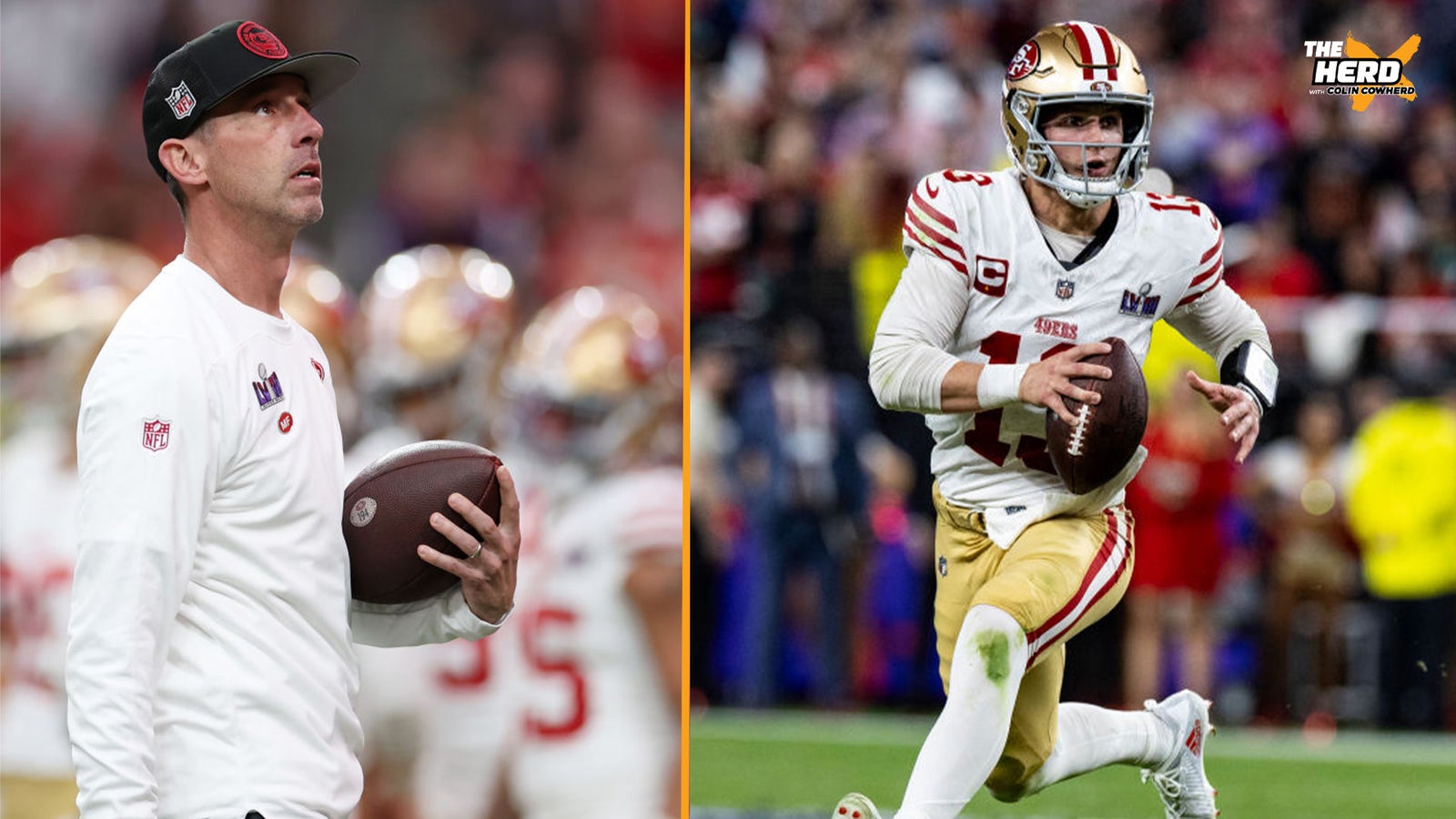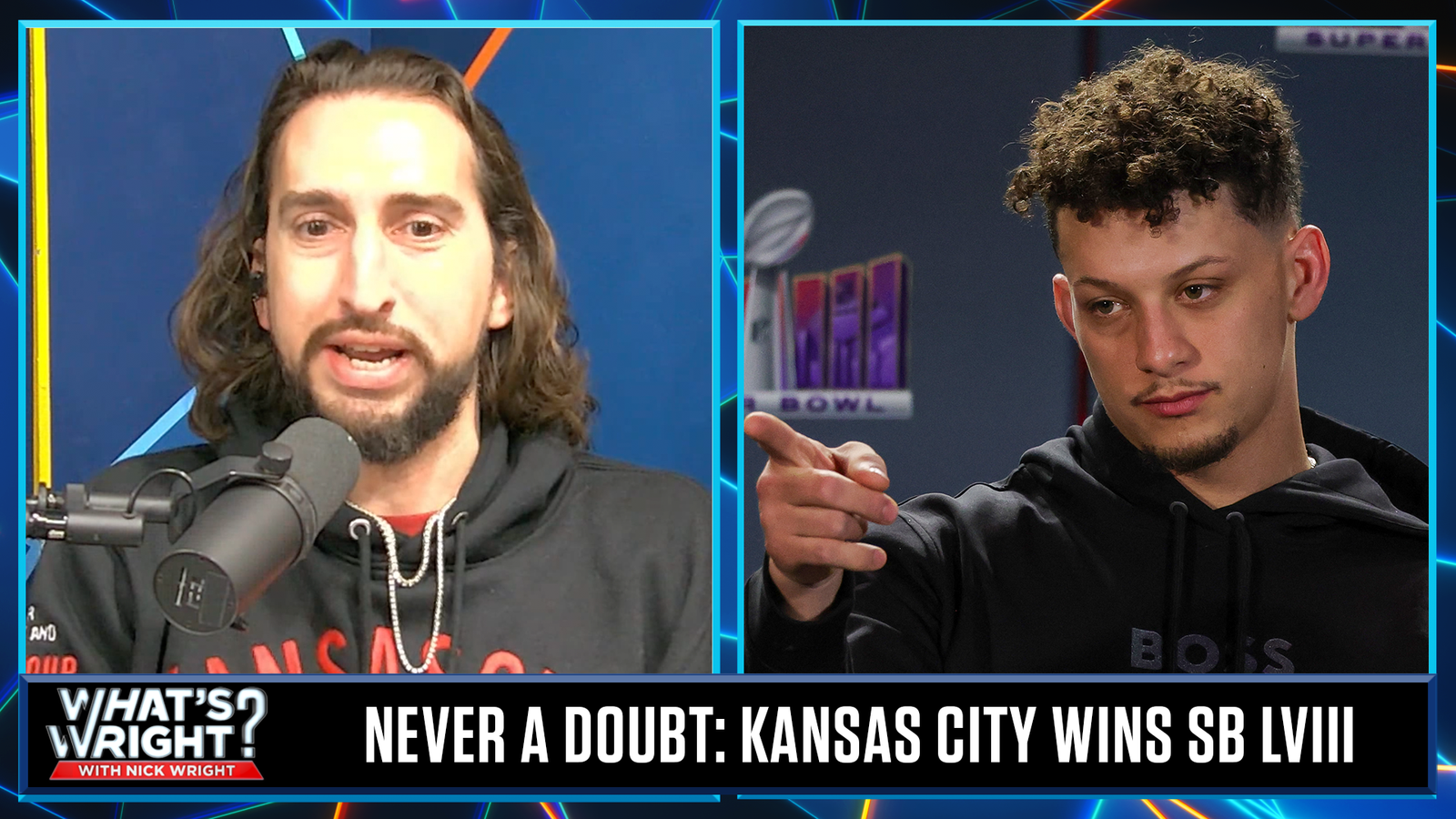Martin Rogers
FOX Sports Insider
LONDON — Britain’s capital is a rather wonderful place to be at this time of year, if you don’t mind your winters chilly and your beers a little warm.
The last part is outdated nonsense — room-temp ales long ago ceased to be a common choice. That’s not all that’s changed in modern times.
Football, American-style, might not yet be as British as tea and crumpets, but has gained so much traction that Super Bowl weekend generated a genuine flurry of interest across the pond, despite being separated from Las Vegas by 5,200 miles and an eight-hour time shift.
And, as the Kansas City Chiefs and San Francisco 49ers got to work on Sunday, with the clock approaching midnight in the United Kingdom, vast numbers of Brits decided to keep calm and carry on watching.
“It sounds strange to say it, but the Super Bowl has become a genuine part of our sporting calendar,” Alan McKinlay, assistant sports editor of the Daily Mirror newspaper and a longtime NFL aficionado who covered 14 Super Bowls, told me.
On account of his love of American football, McKinlay was once part of a small and lonely niche within British journalism circles. Until relatively recently, the gridiron was regarded with a mixture of confusion and suspicion by the majority of Brits, seen as an odd, foreign game with peculiar rules and strange-sounding team names.
Much like, if you remember, how European soccer was largely viewed in this country before time, and enlightenment, shifted the metaphorical goalposts and silenced the “soccer haters” into insignificance.
Last weekend, those visiting central London hotels from America (this writer included), could guarantee that they’d be routinely asked where their allegiance lay for the big game, and no, the match-up in question wasn’t West Ham vs. Arsenal. And yes, just like here, it was rarely long before Taylor Swift and Travis Kelce entered the conversation in some shape or form.
Even with a full slate of English Premier League soccer action going on, England’s rugby team taking on Wales in the Six Nations and the England cricket team midway through a high-profile tour of India, the Super Bowl was not overshadowed.
McKinlay oversaw a daily full-page Super Bowl section, provided by a correspondent sent to Sin City this year, a far cry from former experiences when he would have to beg for the inclusion of six “pars” — a half-dozen small paragraphs in tabloid format — totaling little more than 150 aggregate words.
“Not now,” McKinlay added. “The audience sees it, and enjoys it, and looks forward to more of it.”
The in-person experience is unrecognizable as well. In the county of Yorkshire, 200 miles from London, Leeds United soccer club hosted a strongly-attended Niners watch party that was regularly featured on the British broadcast. There was a natural connection — 49ers Enterprises owns Leeds United — but there’s a lot more to it than that.
Why no one is fully to blame for 49ers’ Super Bowl LVIII loss

Nick Szczepanik, who also covered 14 Super Bowls for The Times and The Independent newspapers, remembers when the opportunity to watch the Super Bowl in London with other people was limited to parties staged by three or four trendy nightclubs. Often, most of the patrons on those nights were visiting Americans. Now, Londoners willing to venture out late could take their pick of dozens of locations showing the festivities from Vegas.
At Pergola on the Wharf in East London, a lively clientele was almost entirely made up of Brits and Europeans.
“We will be back at work in a few hours after just a few hours of sleep,” Matthias Meder, a German financier who works in London, told me. “But it is no choice. For us, the Super Bowl is the highlight of the year in sport. Nowadays, we don’t have to explain to people why we love American football. It is not as big as (soccer), but it is really quite mainstream.”
There was never a doubt Chiefs would take the Super Bowl LVIII win

Part of the change, naturally, is as a result of accessibility. In the United Kingdom, the game was telecast on both free-to-air ITV and cable outlet Sky Sports. I mostly watched the Sky version, and it was an enjoyable product, with fewer commercials meaning more airtime for a strong in-stadium analyst crew of retired QB Ryan Fitzpatrick, Miami Dolphins defensive lineman Christian Wilkins, former Buffalo Bills coach Phoebe Schechter and host Neil Reynolds.
Without question, the NFL’s efforts in consistently coming to London for regular season games have paid off, which is part of why the league is now emboldened to venture further afield, with the Brazilian city of São Paulo on the schedule next season.
A point of interest last week was in the way the buildup to the Super Bowl was reported in the English media. The Brits love an underdog story, perhaps due in part to the generational failures of the national men’s soccer team. Therefore, Brock Purdy, with his Mr. Irrelevant backstory, was a big deal, despite the 49ers being a betting favorite, his “David and Goliath” narrative helping to break up the inevitable Taylor-and-Travis overload.
Arguably the biggest shift is that years of exposure have led to a far deeper level of understanding. Szczepanik recalls how his past dispatches from the States were often accompanied by a sidebar written by a “humor” columnist, poking fun at the American game and what was perceived as overindulgence in the showbiz side of football.
“There just wasn’t very much awareness and what interest was there was restricted to a small minority,” Szczepanik said. “In some ways it is strange to see it be so different now, but it is also quite satisfying.”
Years ago, McKinlay was briefed by a former NFL executive on why an NFL game could never, and would never, be played in London. The same sentiment, in fact, that many are spouting now about the prospect of a future London Super Bowl, despite Commissioner Roger Goodell touting it as a possibility.
In most ways, the tune, and the times, have changed.
Martin Rogers is a columnist for FOX Sports and the author of the FOX Sports Insider newsletter. Follow him on Twitter @MRogersFOX and subscribe to the daily newsletter.

Get more from National Football League Follow your favorites to get information about games, news and more
